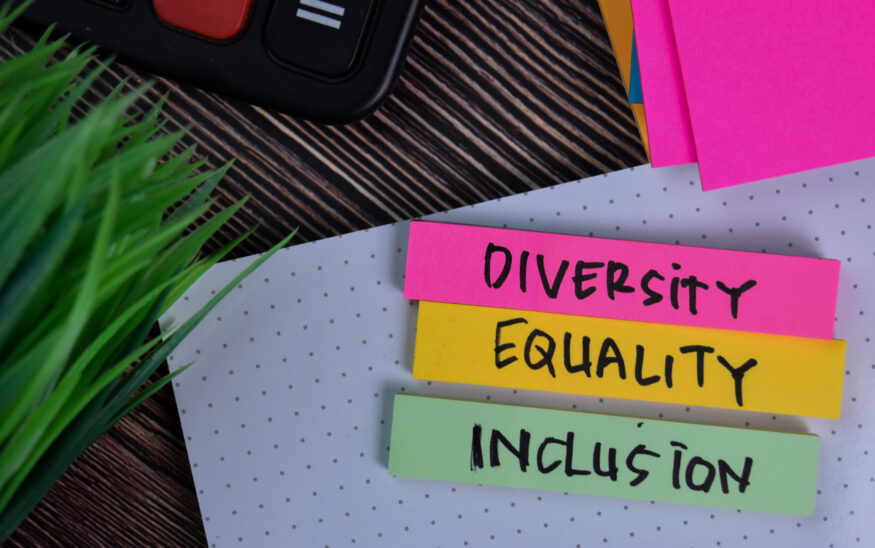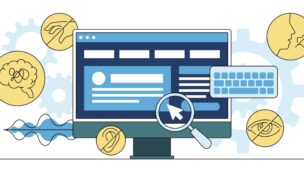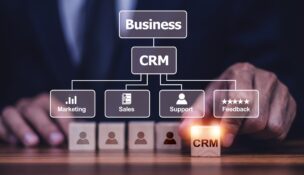Unlocking the Power of DEI: Building Better Programs for Business and People
How to harness the benefits of diversity for lasting change and economic prosperity.
Helen Young Hayes //July 6, 2023//


Unlocking the Power of DEI: Building Better Programs for Business and People
How to harness the benefits of diversity for lasting change and economic prosperity.
Helen Young Hayes //July 6, 2023//
Diversity and inclusion programs have moved into the mainstream. According to the global management consulting firm McKinsey & Co., some $8 billion is spent annually on diversity training in the U.S., and positions dedicated to diversity, equity and inclusion (DEI) have quadrupled in the past five years. Unfortunately, these efforts have not always resulted in measurable improvements in diversity. Why do DEI programs fail to deliver? Why invest in DEI in the first place? And how can we build better programs to work for business and people?
READ: How to Hire with Diversity in Mind
What DEI gets wrong
Extensive research, including studies by Harvard and McKinsey, reveals that common DEI tactics — like mandatory diversity training, processes prohibiting discrimination, and a one-and-done mentality — don’t deliver lasting change, and can even backfire, resulting in increased inequity. Changing mindsets and behavior is hard.
… and why it’s right
So, why invest the time and money in DEI? Dozens of research studies document the benefits to businesses: Diverse companies enjoy 2.5 times higher cash flow per employee, have 19% higher revenues, and have better anticipation/coping/adaptation skills. They are more resilient during downturns and are 45% more likely to gain market share, 70% more likely to capture new markets, and significantly outperform the S&P 500.
Diversity matters. In a Diversity & Inclusion Workplace Survey published by Glassdoor in 2020, three-quarters of all job seekers said a diverse workplace was important to them, including 72% of women, 89% of Black respondents, 80% of Asians and 70% of Latinos. Importantly, customers increasingly demand a commitment to DEI: 57% of consumers prefer brands that address social inequalities.
Although compelling, the financial and operational case for diversity is exceeded by the benefits people and communities experience. Inclusive cultures value and embrace difference, giving workers equitable opportunities to thrive. Employees at diverse companies are more engaged and more productive, have better physical and mental health and reduced absenteeism. With a sense of belonging and a voice, employees are empowered to contribute more.
READ: Navigating the New Era of Employee Engagement — Everything You Need to Know
Importantly, DEI builds stronger communities and closes persistent equity gaps. Building diverse workforces through properly implemented DEI programs boosts economic opportunity and prosperity for historically underrepresented groups and cures structural mismatches in the economy that exacerbate talent shortages for employers and reduce opportunity for workers.
DEI that works: a how-to guide
Successful DEI initiatives begin with the inclusive practice of learning, measuring and educating: gaining a nuanced understanding of the causes, practices and outcomes of inequity and bias, while understanding the current challenges that affected employees’ experience. To foster listening, successful DEI programs establish equity councils and employee resource groups to build bridges and create community.
Cultural assessments are critical to establishing baselines for how employees and job candidates experience your workplace. Measure diversity and outcomes in recruiting, hiring, retention, promotions, raises and pay equity. Benchmark against industry and geographic peers to gauge your success.
Build a more inclusive culture by addressing unconscious or implicit bias, which occurs when individuals make judgments influenced by gender, race, age, or other factors without realizing they have done so. Dozens of bias types have been identified that impact hiring and promotion: For example, identical resumes with white-sounding names receive 50% more callbacks than resumes with Black-sounding names.
READ: It’s Time to Bridge the ‘Say/Do’ Gap in Diversity and Inclusion
DEI through skills-based hiring
Businesses can grow their pool of diverse talent through expansive practices in both recruiting and hiring. The first step? Eliminate college-degree requirements and hire for skills. Currently, 86% of Colorado employers say the skilled talent gap threatens their business, but some of this pain is self-inflicted. Recruiters typically use degrees as a quick screening mechanism, disqualifying thousands of capable Coloradans in the process. Consider this: 77% of Colorado’s top jobs post a degree requirement, yet only 30% of Coloradans earn one.
Instead of relying on college degrees, forward-thinking employers have embraced skills-based hiring, dramatically growing their talent pool and creating a more equitable, inclusive hiring process. According to research from McKinsey & Co., hiring for skills shortens the time to hire, reduces hiring costs, and is five times more predictive of job performance than hiring for education. And it aids retention: Employees without college degrees stay in their roles 34% longer than those with degrees.
READ: Embracing Neurodiversity in the Workplace — 5 Benefits of Hiring Neurodiverse Talent
DEI-focused promotion and retention
Most companies overlook their greatest potential asset in creating a more diverse workplace: their own employees. Other inclusive practices, like career-pathing, upskilling, tracking mobility and skill-based promotion practices help drive retention and ultimately build a valuable future talent pipeline of managers and leaders.
Two critical underutilized DEI tools that boost retention and drive equity through all levels of an organization are mentorship and sponsorship programs. Having mentors and sponsors who advocated for them is the single attribute shared by people of color who have progressed furthest in the leadership ranks. Mentoring programs boost the representation of Black, Hispanic and Asian-American managers by 9-24 percentage points.
DEI at work
ActivateWork is a Colorado-based nonprofit recruiting, training, placement and coaching firm that I’m proud to have founded. Closing the IT talent gap, we provide rigorous, tuition-free IT training for individuals historically underrepresented in the tech industry. We expand the skilled workforce by providing industry-demanded tech training and credentials, like COMPTIA A+ and Network+, and then connect our graduates, who are 70% BIPOC, to employers who need and want skilled, diverse technologists that their normal HR practices would overlook. For our 40+ employer partners, such as Trimble, Bank of America and Ping Identity, we are both a skilled talent solution and a DEI partner.
Through our registered apprenticeships in cybersecurity, software development and DevOps, ActivateWork helps IT employers bridge critical mid-skill shortages while enhancing diversity and generating an ROI. Apprentices learn customized skills and competencies specific to their employer on the job, and experience rapid economic mobility. Through apprenticeship, employers that build versus buy talent earn an average $1.47 return for every $1 invested.
READ: Want to Set your Business Apart From the Rest? Consider Apprenticeship
The Colorado Inclusive Economy Movement
The profound benefits of DEI to our BIPOC communities and the businesses that hire them are why I founded Colorado Inclusive Economy (CIE), a CEO-led movement of racial equity, diversity and inclusion. CIE is composed of leaders of business, government, education and nonprofits who want to co-create a Colorado that works for all. Founding members include Jandel Allen-Davis of Craig Hospital, Rob Cohen of IMA Financial, Janice Sinden of the Denver Center for the Performing Arts, and many other community leaders. Altogether, 140 leaders have engaged on a journey to build multicultural, inclusive workforces through authentic DEI programs and practices. By transforming hiring, recruiting, retention, promotion and pay practices, CIE intends to build the employment, income and wealth of BIPOC individuals across the state.
When it’s done right — through expansive, inclusive, and additive DEI workforce practices — employers can build diverse workforces that solve talent gaps expand the candidate pool and retain and develop diverse talent — improving individuals, communities and Colorado’s economy. It requires dedicated, measurable commitments to common-sense, skills-based hiring practices, building an inclusive community based on communication and understanding, and a shift to apprenticeships, upskilling and mentorship. ActivateWork and Colorado Inclusive Economy are leading the charge toward a diverse economy that works for all Coloradans.
 Helen Young Hayes is the CEO & founder of Denver-based ActivateWork, a nonprofit recruiting, training and coaching firm that connects employers to a diverse pool of exceptional talent .
Helen Young Hayes is the CEO & founder of Denver-based ActivateWork, a nonprofit recruiting, training and coaching firm that connects employers to a diverse pool of exceptional talent .

























